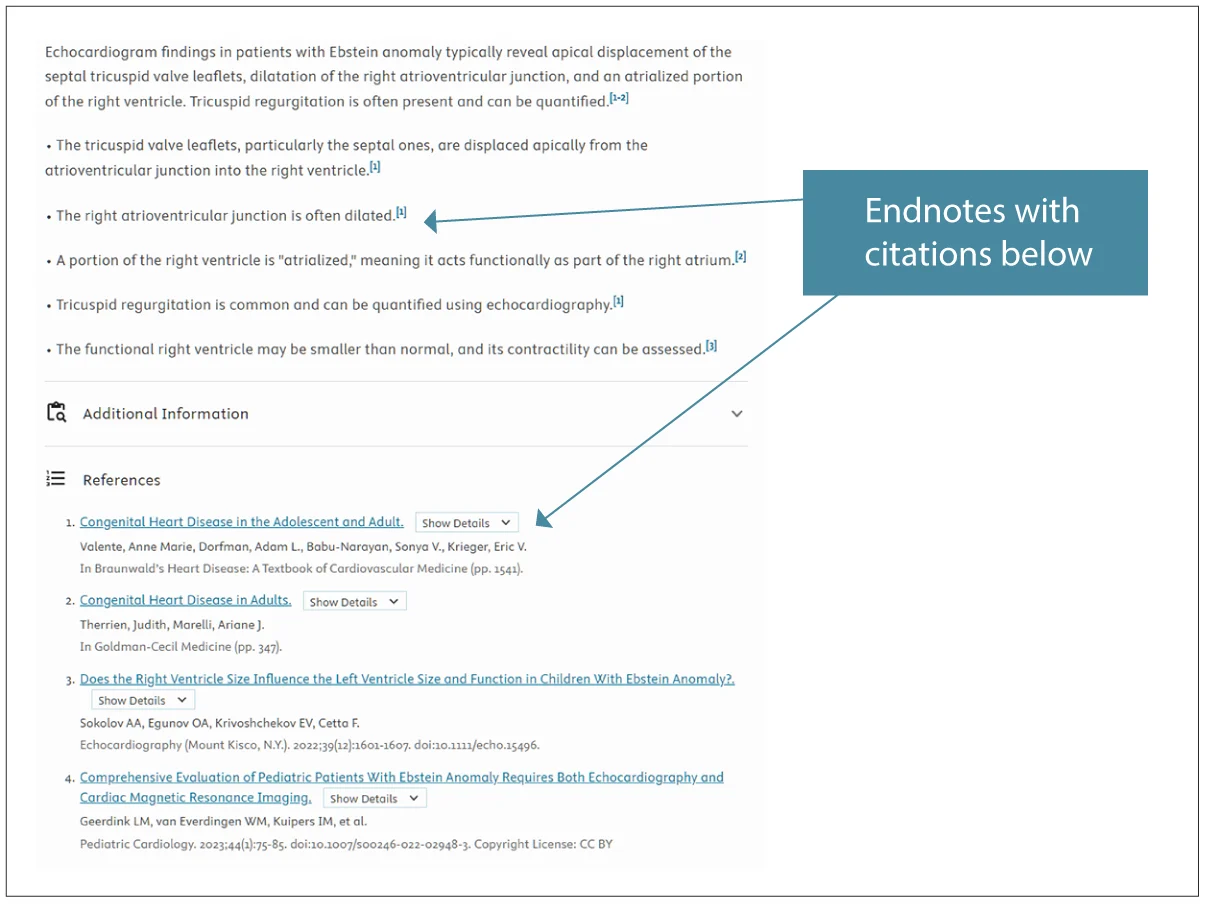ClinicalKey AI in action
Elsevier's ClinicalKey AI, our latest clinical solution leveraging generative AI, supports clinicians at the point of care with answers to some of the most complex questions. The solution allows clinicians to enter questions using various shorthand terms and acronyms to support faster input and generate summarized responses using the latest evidence and drug information.






